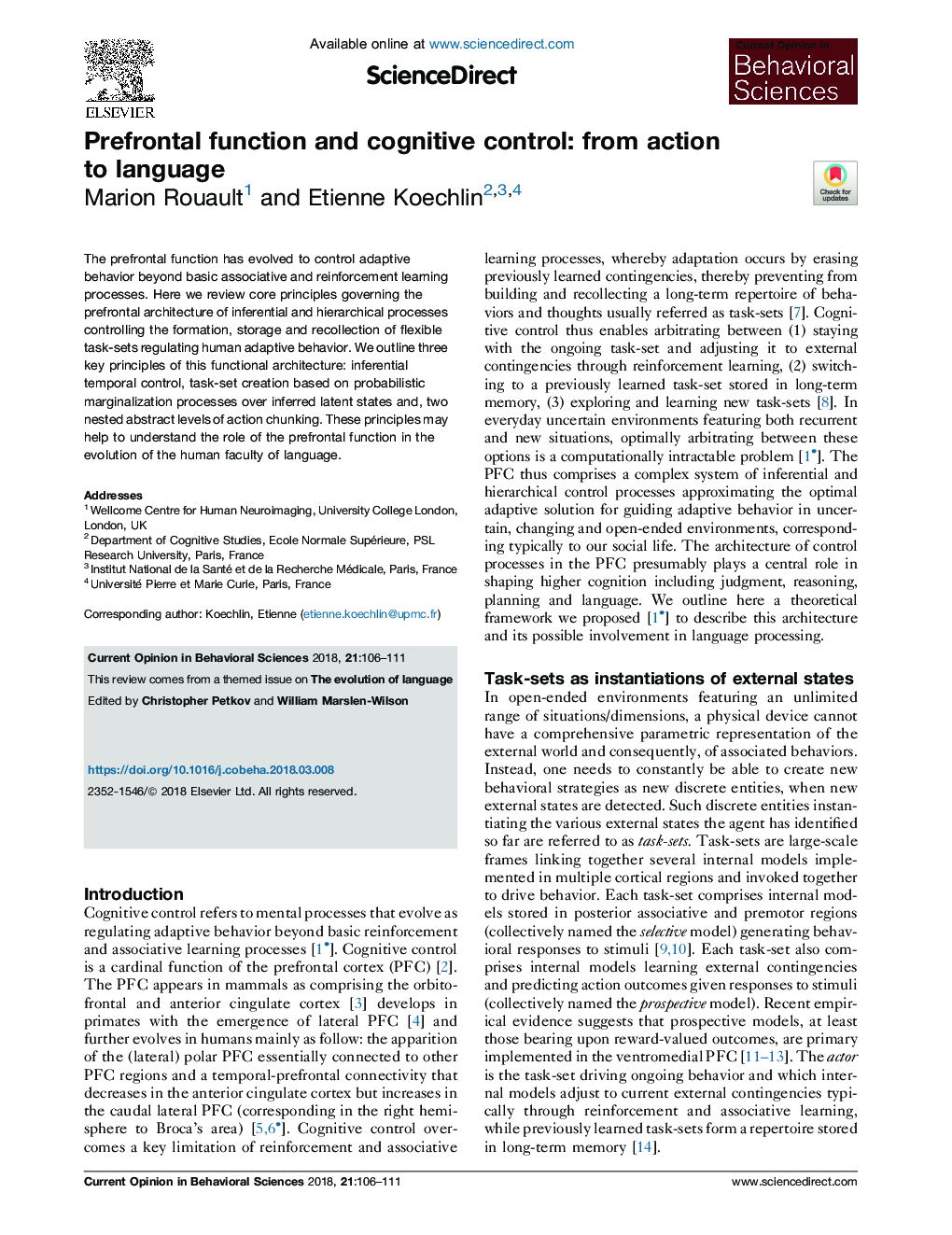| Article ID | Journal | Published Year | Pages | File Type |
|---|---|---|---|---|
| 8838131 | Current Opinion in Behavioral Sciences | 2018 | 6 Pages |
Abstract
The prefrontal function has evolved to control adaptive behavior beyond basic associative and reinforcement learning processes. Here we review core principles governing the prefrontal architecture of inferential and hierarchical processes controlling the formation, storage and recollection of flexible task-sets regulating human adaptive behavior. We outline three key principles of this functional architecture: inferential temporal control, task-set creation based on probabilistic marginalization processes over inferred latent states and, two nested abstract levels of action chunking. These principles may help to understand the role of the prefrontal function in the evolution of the human faculty of language.
Related Topics
Life Sciences
Neuroscience
Behavioral Neuroscience
Authors
Marion Rouault, Etienne Koechlin,
